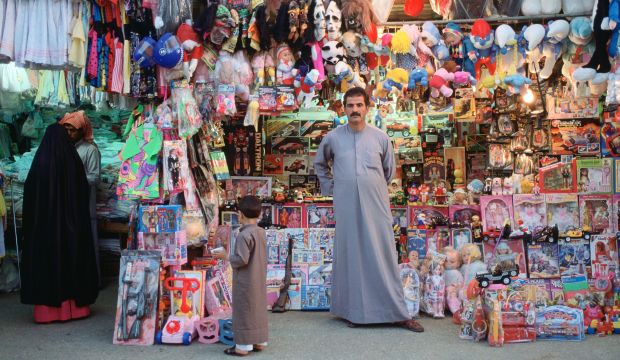London, Asharq Al-Awsat—For Mai Al-Nakib, a Kuwaiti writer who spent large chunks of her life away from her home country, writing fiction is “a way to open a space to kind of remind myself of the different kind of place Kuwait used to be.”
[inset_left]The Hidden Light of ObjectsBy Mai Al-NakibBloomsbury Qatar Foundation Publishing, 224 pagesLondon, 2014[/inset_left]
Speaking at the launch of her much-celebrated debut work The Hidden Light of Objects at the Mosaic Rooms in London on Thursday, Nakib described the book as a collection of loosely connected short stories held together by a series of vignettes that act like a “visible wire” weaving through the book. Each of the ten vignettes is narrated in the first person by a character who reflects on what happened.

Nakib, 43, was born at a defining moment in Kuwait’s history and was only a few months old when her family left to London, then Edinburgh, before eventually settling in the US.
The short story collection is set against the backdrop of Saddam Hussein’s invasion of Kuwait. But the book steers away from directly engaging with political turmoil in the region, instead tackling the lives of ordinary people and their relationships to the everyday objects that shape their memories of past places.
In conversation with British–Palestinian writer Selma Dabbagh, Nakib said her book does not overtly deal with the region’s politics. Instead it emphasizes “the everyday lives of the people who live there.” The work is a celebration of and an attempt at conjuring up Kuwait’s past, the Kuwait that her generation, and that of her parents, are familiar with.
After returning to Kuwait, where she now teaches comparative literature at the University of Kuwait, Nakib was shocked by the dramatic transformation that had occurred in society. Kuwait used to be “more open, more heterogeneous and more cosmopolitan,” Nakib said at the launch.
“When I came back to Kuwait after a long time away, it was no longer the place I had known or grew up with. I look around me and see everybody has fallen into a state of amnesia. Nobody else seems to remember the Kuwait I was growing up with,” she added.
It is this state of collective “amnesia” that The Hidden Light attempts to reverse. Jinan, the protagonist in one of the short stories, laments the fact that after Saddam’s invasion of Kuwait “nothing, not a thing went back to the way it had been. New people in the country, new food, new habits, new language.”
The stories are set inside and outside the Middle East, in countries ranging from Kuwait and Lebanon to Greece and Japan. The collection traces transient moments in the lives of people who do not have much in common in terms of their linguistic and national backgrounds. In this respect, the book often reads as a reflection of Nakib’s lack of a sense of belonging.
In an interview with The National newspaper Nakib said: “I do feel living in this part of the world there is always a feeling of instability lurking somewhere. That, perhaps, your home is never quite your home.”
When asked whether she thinks in Arabic, Nakib said English is her—and her mother’s—first language. It is the language she “thinks and dreams” in, she said.
In fact, the English language may prove to be the book’s Achilles’ heel, as far as Nakib’s ambition of reminding Kuwaitis of their country’s past is concerned. Translation will never do justice to the book. An Arabic translation of The Hidden Light will definitely lose the luster of the original.
Will Nakib speak to the present generation of Kuwaitis and succeed in reviving the memory of their country’s “golden” past? Perhaps not in this book, but I am sure she will when she starts “thinking” in Arabic.
